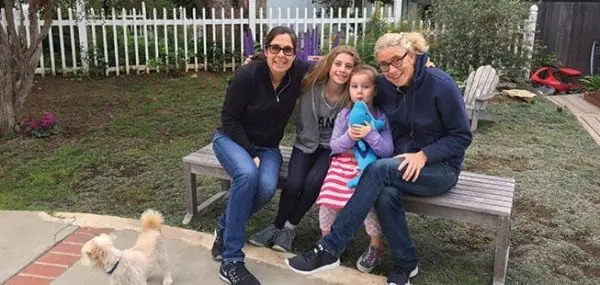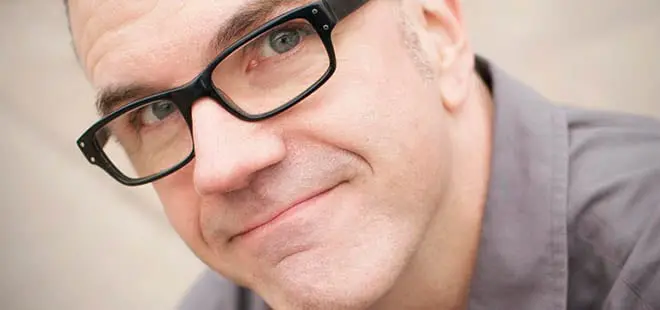Our rational selves understand the importance of letting our teenagers stumble, trip and, yes, fail. But in parenting, our rational selves are not always in the room. In this Q&A, Madeline Levine, a bestselling author (Teach Your Children Well and the Price of Privilege), adolescent psychologist, and mother of three reminds us why objectivity matters (and offers us some tips on how to achieve it).
Q: It’s easy to say setbacks are important for teenagers; it’s much harder to let them have those setbacks.
Levine: It is hard. No parent likes to see her kids fall down, but we’re better at handling this with young children. If your two-year-old falls down, you clap your hands and tell her to get up. When she takes two steps and falls down again, you don’t go crazy because you understand that she’ll fall down a hundred or a thousand times before she learns to walk, But if you tell a parent, “If your kid leaves his homework at home, just leave it on the table because he’s got to fall down—i.e. forget his homework—five times or ten times before he gets better at that,” parents think there is much more at stake. But these successful failures—letting a kid forget his homework—instill a responsibility to remember and develop coping skills.
Q: And when we save them from these “successful failures”?
Levine: Every time you step in, it’s one less opportunity for your teenager to learn two things: how to handle situations and how to handle their feelings. Failing helps teens figure out better strategies for the future, without resorting to unhealthy coping skills.
Q: I often wonder if parents forget how experiencing setbacks played a role in their own success?
Levine: You know, I think that’s so true. My dad died very young. We were on assistance, and I was on scholarship in school and stuff like that. I certainly wished it wasn’t that way, but it trained me how to manage adversity. A lot of kids today look great on paper, but because they’ve never learned how to handle problems, some can develop unhealthy coping skills, like substance abuse, cutting or eating disorders.
Q: How do we know when to let your teenagers struggle and when to step in?
Levine: I think there is this idea of knowing your child. You have to know your child, which is really hard because we are so busy and running around like crazy ourselves. If you know that you’ve got a well-adjusted 12-year-old, who manages things reasonably well, you can leave the forgotten homework where he left it at home. That’s within his realm to handle. If that same 12-year-old is being viciously bullied online, that’s beyond what most twelve year olds can handle. Anytime you are concerned about your child’s safety, you step in.
Q: What about something that feels higher stakes than forgetting homework, but not as serious as bullying, say your teen is on the verge of failing an AP class in high school?
Levine: If your kid has put in effort, and they still can’t pass, it’s probably beyond them. You can bring in all the tutors you want, and maybe your teen can pass with a low grade, but instead of focusing on the outcome, you should evaluate whether your teen should be taking that class in the first place.
Q: Some teenagers feel they have to be the best.
Levine: It’s interesting. I am starting to see the leading edge of kids who have been brought up with this idea of being the best. Yesterday, a mom told me her fourth grade son said: “Maybe I don’t have to be the best at school, but if you’re not the best at school, then you’ve got to be the best at something.”
First of all, very few people are the best at something, and why in the world is a fourth grader worrying about this? He’s supposed to be having fun. There was a New York Time’s Motherlode column about cheating in high school the other day. And one of the readers, a kid attending a prestigious high school, wrote back one of the most touching letters I think I’ve ever read about how he and his friends go to bed after their parents and get up before their parents. They’re trying to do everything they can to please the adults in their life, and they can’t. This fear of failure is everywhere for teens.
Q: You talk about “authentic success.” What is that?
Levine: Research, by Carol Dweck at Stanford, shows that kids do better when they try please themselves than when they try to please the adults around them. So, intrinsic motivation is the star of authentic success. And, this intrinsic motivation needs to be pretty robust when everyone is telling you to go another route. If, say, everyone is telling you to go into finance, but theater is your passion (and I’m saying this because I have a child in theater), you need the passion from that internal drive to follow your own path.
Q: Any last thoughts?
Levine: Parents have to learn how to tolerate their kid’s distress. Parents will say, “I can’t stand to see my kid unhappy.” Well, why not? Who ever grew up without running into problems and challenges? That is part of being alive.




